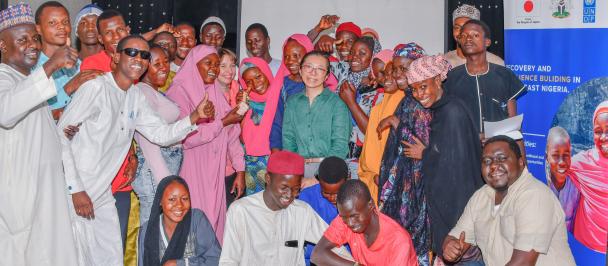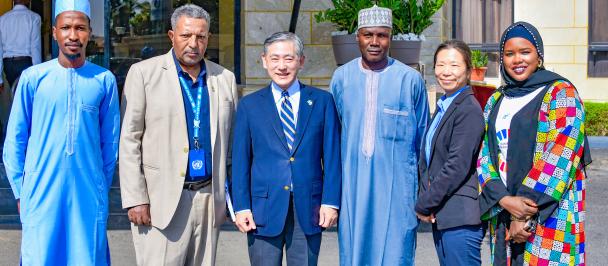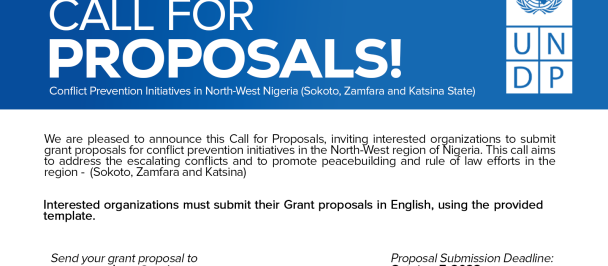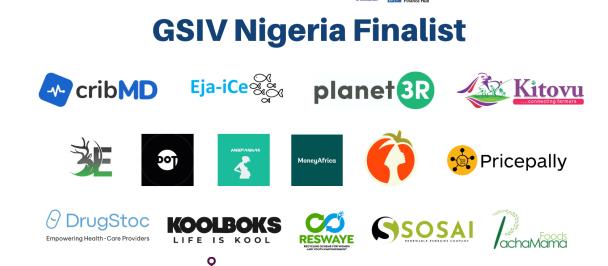Expanding the boundaries of conflict early warning and early response mechanism in north-west Nigeria
February 5, 2024

The EWER software used for reporting potential conflict or crisis in hard to reach locations of Kaduna State
In the ever-evolving landscape of global threats, the need for swift and effective response mechanisms is paramount. The United Nations Development Programme's (UNDP) through the Peacebuilding Fund Project has established the Early Warning and Early Response (EWER) system which stands as a shining example of proactive intervention - making a significant impact in mitigating potential crises.
The EWER system was established to address and identify threats at an early stage and facilitate a rapid response towards conflict mitigation. One notable success that exemplifies the system's efficacy involves the identification and response to potential humanitarian crisis.

Dr. Saleh Momale, Executive Vice Chairman Kaduna State Peace Commission
The Kaduna State Peace Commission (KSPC) was inaugurated in November 2017. UNDP was among the first international organizations that supported the launch and implementation of the commission by developing a strategic plan at the state level. This strategic framework supported the Kaduna State government in streamlining activities and setting clear priorities to ensure that peacebuilding activities are mainstreamed in all the institutions of governance in the state.
A key limitation to peacebuilding interventions that were recognized in 2018, were integrated into the strategic plan. The limitations centered around the need for an efficient EWER mechanism to effectively tackle the persistent conflicts in Kaduna State. The systems in place will be digitally friendly and seamlessly integrating the various capacities within the state.
“It is pleasing to note that UNDP was the first organization to support the KSPC to develop the EWER system and framework. UNDP engaged a professional organization to carry out a need assessment of the commission to engage with a wide range of stakeholders that led to the development of the EWER system. The EWER is a digital base system with a network of early reporters who were trained and supported to help in providing readily available information relating to conflict situation.”
Additionally, UNDP through the PBF project has trained and strengthened the capacity of 40 media practitioners on EWER and conflict-sensitive reporting as part of efforts to promote peace journalism.
“Today communities like Sanga, Kauru, Jema’a LGAs (Local Government Areas), that were once prone to conflict, now experience quite fewer levels of conflict, and this is all thanks to the support from UNDP with the Peace Building Fund (PBF) project” Dr Saleh expresses.

Eric John, State Coordinator on Youth, Peace & Security Network in Kaduna State
Acknowledging the potential of young people as agents of change, UNDP recognized the importance of Youth, Peace, and Security (YPS). Youth play a key role in preventing conflicts and sustaining peace hence the need to involve young people in decision-making processes pertaining to peace and security through various platforms. Through the KSPC, youths from 23 LGAs were trained in a capacity building workshop to better understand the strategic framework and contribute in their own quota towards peace building and conflict prevention.
“The Coalition brought about different professionals in different fields contributing to youth development to the same platform. This has made it easy for us to tap into different opportunities, and it has also brought us closer - thanks to UNDP through the PBF project. And one of the driving forces behind this success is the development of the State Action Plan (SAP) on YPS. We want to say a big thank you to the United Nations Development Programme (UNDP) for this initiative and action towards Peace building in Kaduna State” Eric John expresses.

 Locations
Locations



